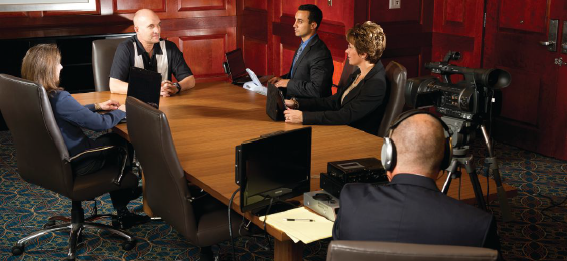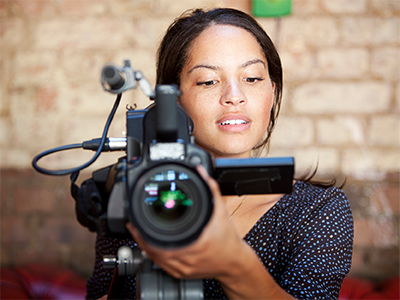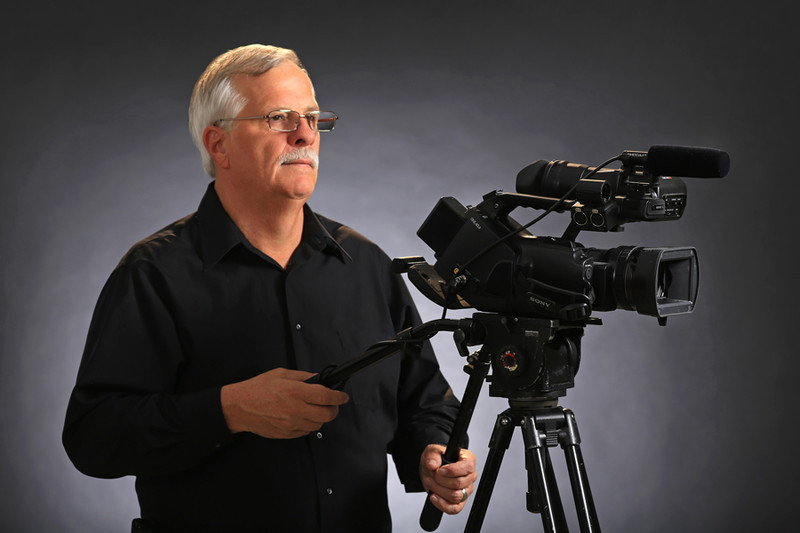The Duty of Lawful Videography in Depositions and Trials
Legal videography has actually emerged as an important device in both depositions and trials, supplying a multifaceted strategy to documenting witness testimonies. As legal specialists progressively identify its value, it motivates a deeper assessment of how these aesthetic documents can influence juror assumptions and trial results.

Relevance of Legal Videography
Lawful videography plays a critical function in the documents and presentation of depositions and tests. This customized field incorporates technical skills with lawful knowledge to produce a reputable document of proceedings that can substantially affect case results. The visual facet of legal videography boosts the understanding of witness testimony, allowing jurors and courts to observe not just the talked words however also the demeanor, emotions, and body language of the witnesses.
Furthermore, legal videography supplies an objective account of events, reducing the potential for misconception that can happen with written transcripts alone. This visual documentation works as a crucial tool throughout test presentations, helping with a more clear and even more convincing narrative for both plaintiffs and offenders. The ability to replay video clip sections during court process allows legal groups to highlight key factors, strengthening their arguments effectively.
The relevance of lawful videography extends past the court; it also plays a crucial function in preserving proof for future recommendation, whether for appeals or more lawful action. Thus, its assimilation into the legal procedure is crucial for making certain a fair and exact representation of the realities, eventually adding to the pursuit of justice.

Refine of Legal Videography
While capturing the nuances of depositions and trials, the procedure of lawful videography entails several vital actions that ensure premium, precise recordings. Originally, a professional legal videographer prepares by reviewing the situation products and recognizing the details demands of the deposition or trial. This preparation includes familiarizing themselves with the participants and the context, which assists in recording relevant details.
On the day of the recording, the videographer sets up the necessary equipment, which usually includes high-definition video cameras, microphones, and appropriate illumination. Making sure ideal angles and sound quality is essential, as it directly impacts the effectiveness of the recording. The videographer connects with lawyers and individuals to develop protocols, guaranteeing that everyone recognizes the recording procedure.
Throughout the deposition or trial, the videographer meticulously records the process, paying close focus to both spoken and non-verbal hints. This includes recording the demeanor and responses of witnesses and attorneys. After the session concludes, the videographer might modify the footage for clarity and conformity with legal standards, generating a last product that accurately mirrors the procedures for future reference and usage in legal contexts.
Benefits in Depositions
The unification of videography in depositions uses various advantages that enhance the general process of collecting evidence. One key benefit is the capacity to catch witness testimonies with aesthetic and auditory integrity, offering an extra precise depiction of the witness's attitude, tone, and body language. This multidimensional strategy enables lawyers and juries to assess credibility better than traditional written records alone.
Additionally, videographed depositions function as a powerful tool for maintaining testimony. Must a witness come to be inaccessible for trial, their recorded deposition can be played in court, making sure that their proof remains obtainable and appropriate. This facet significantly minimizes the threat of losing vital details that could affect instance outcomes.

Last but not least, videography improves the general professionalism of the deposition process, instilling self-confidence in clients concerning the thoroughness of their legal representation (legal videography). By leveraging technology, lawful specialists can significantly boost the performance of depositions
Influence On Tests
In several tests, the assimilation of videography can dramatically influence the presentation of evidence and the court's assumption. Legal videography captures witness testimonies i thought about this and critical evidence in a dynamic layout, enabling jurors to engage with the material on numerous levels. This visual component boosts the narration facet of a test, supplying context and emotional vibration that standard text-based evidence may do not have.
Additionally, video recordings can work as effective devices for impeachment throughout interrogation. When disparities develop between a witness's previous statements and their courtroom testimony, video clip proof offers an objective reference that can guide jurors' opinions. This immediacy and clearness can reinforce the integrity of a party's narrative while at the same time threatening opposing arguments.

Future Trends in Legal Videography
As we look toward the future of lawful videography, several arising trends promise to reshape its function within the courtroom. One significant trend is the integration of expert system (AI) in video analysis and editing. AI can streamline the procedure of recognizing crucial minutes in taped depositions, enabling lawyers to quickly access pertinent web content, consequently improving effectiveness in case prep work.
In addition, the increase of virtual reality (VR) and augmented fact (AR) innovations is expected to transform just how jurors experience proof. legal videography. By immersing jurors in a substitute atmosphere, these technologies can provide a more extensive understanding of complicated situations, leading to even more educated deliberations
In addition, the raising demand for remote depositions, accelerated by the COVID-19 pandemic, will likely proceed. Lawful videographers will require to adapt to new software program and systems to guarantee top quality recordings in digital settings.
Lastly, the expanding emphasis on information safety will demand stricter methods for storing and sharing video clip evidence. As the lawful landscape develops, lawful videographers need to stay abreast more helpful hints of these fads to preserve their relevance and performance in the judicial process.
Verdict
In recap, legal videography offers a vital function in the judicial procedure, improving the integrity of depositions and trials. By capturing the nuances of witness testaments, this medium not just preserves crucial evidence yet additionally help in presenting info properly to jurors. The value of visual paperwork in reviewing integrity and facilitating cross-examination can not be overemphasized. As modern technology continues to evolve, legal videography is positioned to further transform its duty within the legal landscape.